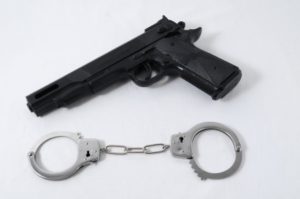 On April 29, 2022, a three-judge appellate panel decided the Gloucester County case of State v. Anthony Kille. The principal issue under N.J.S.A 2C:39-4 concerned whether the conviction could stand if the judge omits one of the required elements from the jury charge.
On April 29, 2022, a three-judge appellate panel decided the Gloucester County case of State v. Anthony Kille. The principal issue under N.J.S.A 2C:39-4 concerned whether the conviction could stand if the judge omits one of the required elements from the jury charge.
Presiding Judge Messano wrote for the panel in relevant part: Defendant also argues the judge’s instructions on the unlawful purpose charge were erroneous and require reversal. He contends the judge failed to tell jurors the State must prove defendant possessed the firearm with the specific purpose to use it against another person or another’s property.
Defense counsel raised an objection to the judge’s instructions as originally drafted because they failed to state the specific unlawful purpose alleged by the State. See Model Jury Charges (Criminal), “Possession Of A Firearm With A Purpose To Use It Unlawfully Against The Person Or Property Of Another (N.J.S.A. 2C:39-4(a))” at 5 (rev. Oct. 22, 2018) (Model Charge) (requiring judge to “describe the unlawful purpose of defendant’s possession of the weapon”). The judge modified the instructions in response, telling jurors the State contended defendant’s unlawful purpose was to “threaten, injure or kill Davontae.”
On appeal, defendant takes a new tack, not asserted at trial, arguing the judge omitted an entire portion of the model charge that defines the third element of the crime, i.e., that defendant possessed the firearm with the purpose to use it against another person or another’s property. See id. at 4-5. Indeed, although the judge started the instructions by telling jurors there were four elements to the offense, neither the judge’s written instructions nor his oral charge included the portion of the Model Charge defining the third element; the judge simply went from the second to the fourth element of the crime.
The State contends the judge’s charge was sufficient because the jury could infer from the charge given all the necessary concepts regarding the crime’s third element. We disagree.
This case demonstrates the importance of having criminal judges that had criminal trial experience as attorneys. More often than not, our superior court criminal judges had no such experience. Instead, they learn on the job and are usually guided by the prosecutor’s office.
